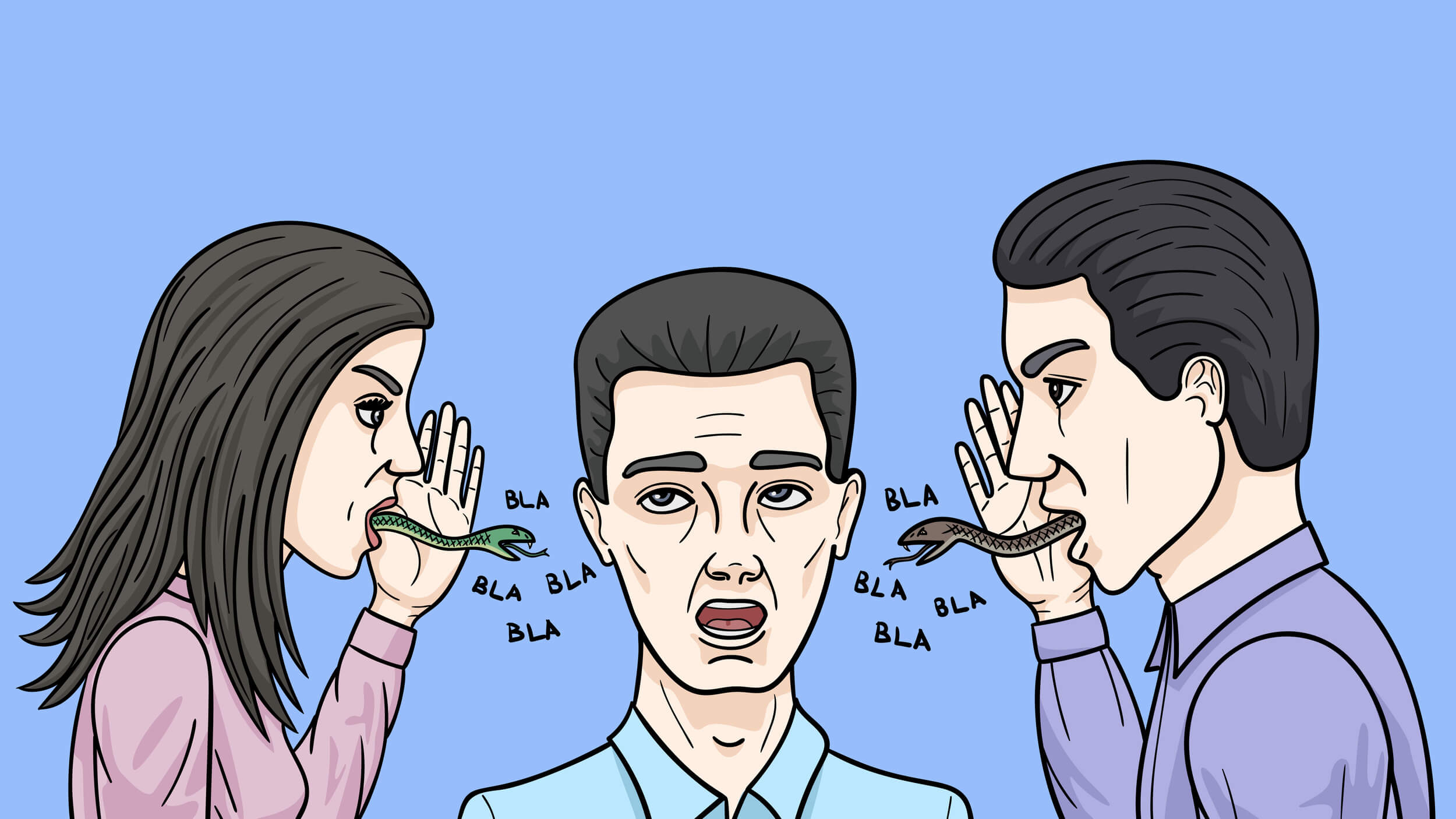Some people won’t tell you why they don’t like you. They’ll just avoid you, keep conversations short, or seem distant. It’s easy to assume they’re the problem, but sometimes, certain behaviors push people away—even when you don’t mean to.
Little things, like interrupting too much, bragging, or always steering conversations back to yourself, can make others feel unheard or unimportant. Some habits happen without realizing, and over time, they can leave a bad impression.
Nobody wants to feel disliked. The good news is, most of the time, it’s not personal—it’s about how you come across. Small changes in how you talk, listen, and respond can make a big difference in how people see you.
If you’ve ever wondered why someone seems cold toward you, there may be a reason. Understanding these behaviors can help you connect better, build stronger relationships, and make sure you’re not pushing people away without knowing it.
Why Some People May Dislike You
Not everyone will like you, and that’s okay. But sometimes, when people dislike you, it’s not about who you are—it’s about how you act. Certain habits can frustrate others, even when they’re not done on purpose.
A simple mistake, like interrupting too often or not keeping your word, can make someone pull away. These things don’t always seem like a big deal, but over time, they can add up.
Recognizing what might be pushing people away gives you the chance to fix it. Small changes can help you build better connections and leave a more positive impression.
1. Talking Too Much About Yourself
Nobody enjoys a conversation that feels one-sided. If every topic circles back to your experiences, opinions, or achievements, others may feel like they don’t matter. When people dislike you, this could be one of the reasons—they don’t feel included in the conversation.
A good chat is like a game of catch. Both sides should get a chance to speak, listen, and respond. If one person keeps holding the ball, the other eventually loses interest.
Instead of always steering the conversation back to yourself, ask open-ended questions. Show interest in what others have to say. Small changes like this can make people feel heard and valued, which naturally makes them enjoy your company more.
2. Always Trying to One-Up Others
Someone shares a personal win, and instead of celebrating them, you immediately bring up something bigger you’ve done. This is one reason people dislike you—nobody likes to feel like they’re in a competition when they’re just trying to connect.
Bringing up your achievements isn’t bad, but constantly topping someone else’s story can make them feel small. It shifts the focus away from their moment and makes conversations exhausting.
Try letting others have their time to shine. If someone shares good news, celebrate it with them instead of shifting the spotlight back to yourself. People will appreciate it when they feel heard rather than compared.
3. Being Too Negative All the Time
Negativity is draining. If every conversation involves complaining, criticizing, or expecting the worst, others may start avoiding you. When people dislike you, sometimes it’s because they feel emotionally exhausted after talking to you.
It’s normal to vent sometimes, but constantly focusing on what’s wrong can bring down the mood. People naturally gravitate toward those who make them feel good, and that includes conversations filled with positive energy.
Try shifting your perspective. Instead of only seeing what’s wrong, find something good in every situation. Balancing complaints with appreciation makes a big difference. When you focus on more uplifting topics, others will enjoy being around you.
4. Not Respecting Personal Boundaries
Everyone has different levels of comfort with personal space, time, and touch. Standing too close, interrupting someone’s alone time, or being overly touchy can make others uncomfortable. If people dislike you, it might be because they feel like their space isn’t respected.
Some folks are okay with hugs, while others prefer a wave. Some love constant communication, while others need quiet moments. Learning to read the room and recognize these differences helps maintain better relationships.
Pay attention to body language. If someone steps back, they might need more space. If they seem distant, they may need time alone. Respecting these cues shows emotional awareness and helps people feel more at ease around you.
5. Being Unreliable or Breaking Promises
Trust isn’t built overnight, but it can be broken fast. If you constantly cancel plans, show up late, or fail to keep promises, others will start to see you as unreliable. This is one reason people dislike you—they can’t count on you when it matters.
It’s easy to say yes in the moment and then change your mind later, but doing this too often makes people feel unimportant. They might stop inviting you to things or relying on you for support.
Being dependable doesn’t mean saying yes to everything. It means following through on what you commit to. If you can’t do something, be honest upfront instead of backing out last minute. Reliability strengthens trust and makes people respect you more.
6. Interrupting Too Often
Cutting people off mid-sentence can come across as impatient, dismissive, or even disrespectful. If people dislike you, it might be because they feel like you don’t listen.
Nobody likes feeling ignored. Interrupting can make someone feel like their words don’t matter or that you think what you have to say is more important. Even if you don’t mean it that way, it can create frustration over time.
Good listening takes practice. Let the other person finish their thought before responding. If you find yourself jumping in, take a deep breath and wait a few extra seconds before speaking. A little patience goes a long way in making conversations feel more balanced and respectful.
7. Acting Arrogant or Bragging
Confidence is great. Acting like you’re better than everyone else? Not so much. If you constantly talk about how smart, talented, or successful you are, it can make others feel small. This is one reason people dislike you—nobody enjoys being around arrogance.
There’s nothing wrong with being proud of your achievements. But when every conversation revolves around proving you’re the best, it starts to push people away. Instead of impressing others, it makes them want to keep their distance.
Humility makes a huge difference. You don’t have to hide your success, but balance it by showing interest in others. Acknowledging someone else’s strengths and giving credit where it’s due will make you more likable.
8. Not Taking Accountability for Mistakes
Nobody’s perfect, but refusing to admit mistakes can make you hard to be around. If you blame others, make excuses, or avoid responsibility, it damages trust. When people dislike you, this could be a big reason—they feel like they can’t count on you to own up to things.
Making mistakes isn’t the problem. Everyone messes up sometimes. The real issue is how you handle it. People respect those who admit when they’re wrong and try to do better.
Instead of getting defensive, acknowledge your part in the situation. Apologize when needed and focus on fixing things rather than shifting blame. Owning up to mistakes doesn’t make you weak—it makes you trustworthy.
How to Improve Your Social Interactions
Getting along with people isn’t about being perfect—it’s about being aware of how you come across. Small changes, like listening more, being dependable, and respecting personal space, can make a big difference in how others see you. If people dislike you, sometimes it’s because they don’t feel valued in your presence.
No one expects you to get everything right all the time, but people appreciate when they feel respected and heard. Paying attention to your words and actions can strengthen your relationships.
Simple things, like asking thoughtful questions, letting others finish speaking, and keeping your word, help build trust. When others feel comfortable around you, they’re more likely to enjoy your company.
Taking a step back to notice your habits and adjusting where needed can improve how people respond to you. Being mindful of how you interact with others creates stronger, more meaningful connections that last.















